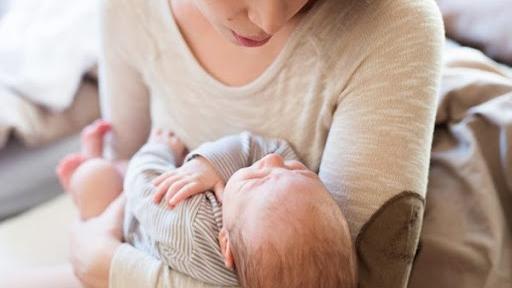Quality and Safety of Assistance and Care. And the American community of Vicenza benefits from it and shows appreciation. This is demonstrated by the increasing requests and numbers. The birthing process offered by San Bortolo Hospital in Vicenza combines the most modern knowledge and technologies in the medical and diagnostic fields with the professionalism of the teams available to both the mother and the newborn. The work is organized to respond to the specific needs that both mother and newborn develop with the aim of personalizing healthcare and guiding future parents towards managing their own child independently. At birth, if the conditions of the mother and newborn allow it, there is the possibility of performing the "skin-to-skin" practice in the delivery room for the first two hours of life, which promotes a process called bonding, so that the newborn adapts better to postnatal life and spontaneously and early attaches to the mother's breast.
The intention, in short, is to strengthen the deep bond that is established between parent and child from birth, allowing the child to feel welcome and communicate with the parent, and the mother or father to learn to interpret their needs. To ensure the safety of the "skin-to-skin" contact, the mother and newborn are supervised by delivery room staff and the person accompanying the mother. After the first hours of life, the newborn is taken together with the parents to the Nest where all the hygienic and clinical operations planned for this first impact with life are carried out: bathing, general evaluation, measurement of anthropometric measures, conjunctival and anti-hemorrhagic prophylaxis through intramuscular administration of vitamin K. And, of course, the necessary checks are set up. Subsequently, the newborn is transferred to the mother's room where they can stay 24 hours a day. During the hospital stay, the mother, if she wishes, is assisted by staff in feeding the newborn, as well as with diaper changes and dressing, bathing, and umbilical stump hygiene. The staff provides all the necessary assistance and support for breastfeeding. Maximum attention is given to the newborn. Nothing is overlooked. The child undergoes a pediatric examination, weight monitoring, screening for metabolic diseases with the first meconium smear and the collection of a few drops of blood from the heel after 48 hours of life, and bilirubin measurement. And then all the exams and checks provided by the protocol are carried out. The audiological screening is performed using otoemissions to assess the reaction to sound stimuli, and thus to early identify possible hearing deficits to adopt the most appropriate treatments immediately and prevent deafness from causing a delay or failure in learning verbal language. The vision examination follows using the red reflex test, by shining a light beam on the eye to be examined with a direct or indirect ophthalmoscope. Then, a thorough cardiac examination is performed to rule out major heart defects, and finally, the Ortolani maneuver is performed to detect the possible presence of congenital hip dysplasia.
Additional examinations may also be established based on family history for particular pathologies and any anomalies highlighted during pregnancy. But another consideration as an additional guarantee of safety. In the case of sudden emergencies, if at any time after birth, a deviation from physiology should occur, the birthing point is equipped with a neonatal intensive care unit, open to parents 24 hours a day, capable of addressing any pathological situation. Another important aspect. In case of need and with the prior consent of the parents, it is possible to use donated human milk, collected and traced by the Human Milk Bank that is located in the department. At discharge, the newborn is weighed and examined. The parents are given a discharge letter specifying the results of the tests performed and providing useful advice. And, if necessary, post-discharge hospital checks are scheduled.
Vicenza
San Bortolo birthing experience Growing numbers among Americans
25 marzo 2024

The hospital's Obstetrics and Gynecology Clinic provides tailored care for American patients, with dedicated English-speaking staff

The hospital's Obstetrics and Gynecology Clinic provides tailored care for American patients, with dedicated English-speaking staff
Franco Pepe
© Riproduzione riservata
Il Giornale di Vicenza è su Whatsapp. Clicca qui per iscriverti al nostro canale e rimanere aggiornato in tempo reale.

